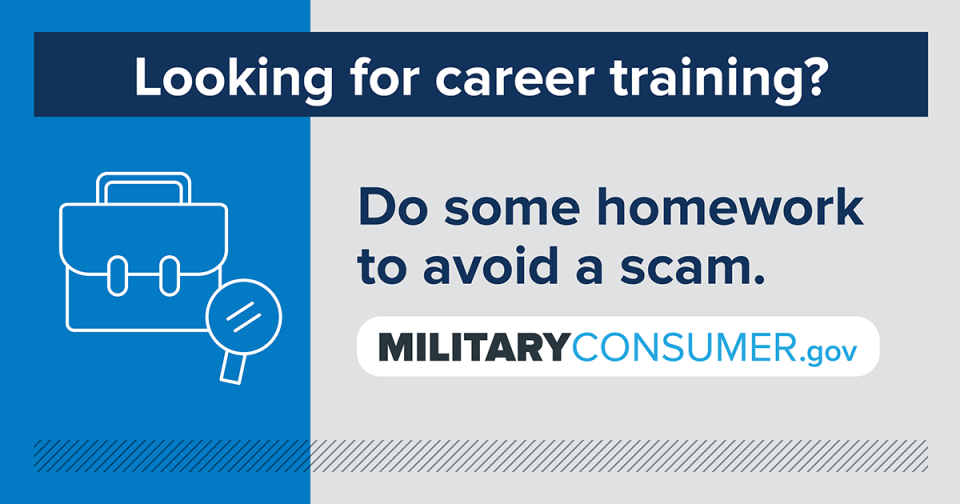The FTC says online healthcare career-training company Career Step targeted people — including military servicemembers and spouses — with false advertisements and other illegal tactics. Learn what the $43.5 million settlement means for some current and former students.
To enroll more than 150,000 students, the FTC says Career Step falsely advertised that over 80% of its graduates get jobs in their field (not true) and that partnerships with well-known companies like CVS and Walgreens resulted in jobs for students (they didn’t). It also promised students would complete programs in less than six months (most needed much longer) and get placed in required externships (most never were). Instead, says the FTC, students paid for programs — sometimes with military education benefits — that most couldn’t finish. That’s because students often had trouble accessing the coursework, weren’t placed in necessary externships, and didn’t get the support Career Step promised.
The FTC says only about 25% of enrolled students completed the programs. And only about 8% of those students found employment. To “help” students, Career Step often pushed them to purchase more time to complete programs they’d already paid for. Or offered “free” extensions in exchange for posting reviews on sites like Google, Better Business Bureau, and Trustpilot.
To settle the case, Career Step will automatically cancel $27.8 million in debts owed by current or former students who enrolled between February 2020 and February 2023. And it will have those debts deleted from students’ credit reports, give students access to their diplomas and transcripts, and change how it will operate and advertise. Career Step will pay another $15.7 million to refund former students. The FTC will automatically send payments to eligible students — no need to apply or submit a claim. Updates and more information will be posted at ftc.gov/refunds.
Before you spend military education funds or other benefits, compare programs with free online tools like TrainingProvidersResults.gov and College Scorecard. Recruiters often get paid by the number of students they bring in. If they’re rushing to you enroll, walk away. And if you’re enrolled in a school that’s not living up to its promises, report it to the FTC at ReportFraud.ftc.gov and your state attorney general’s office.

